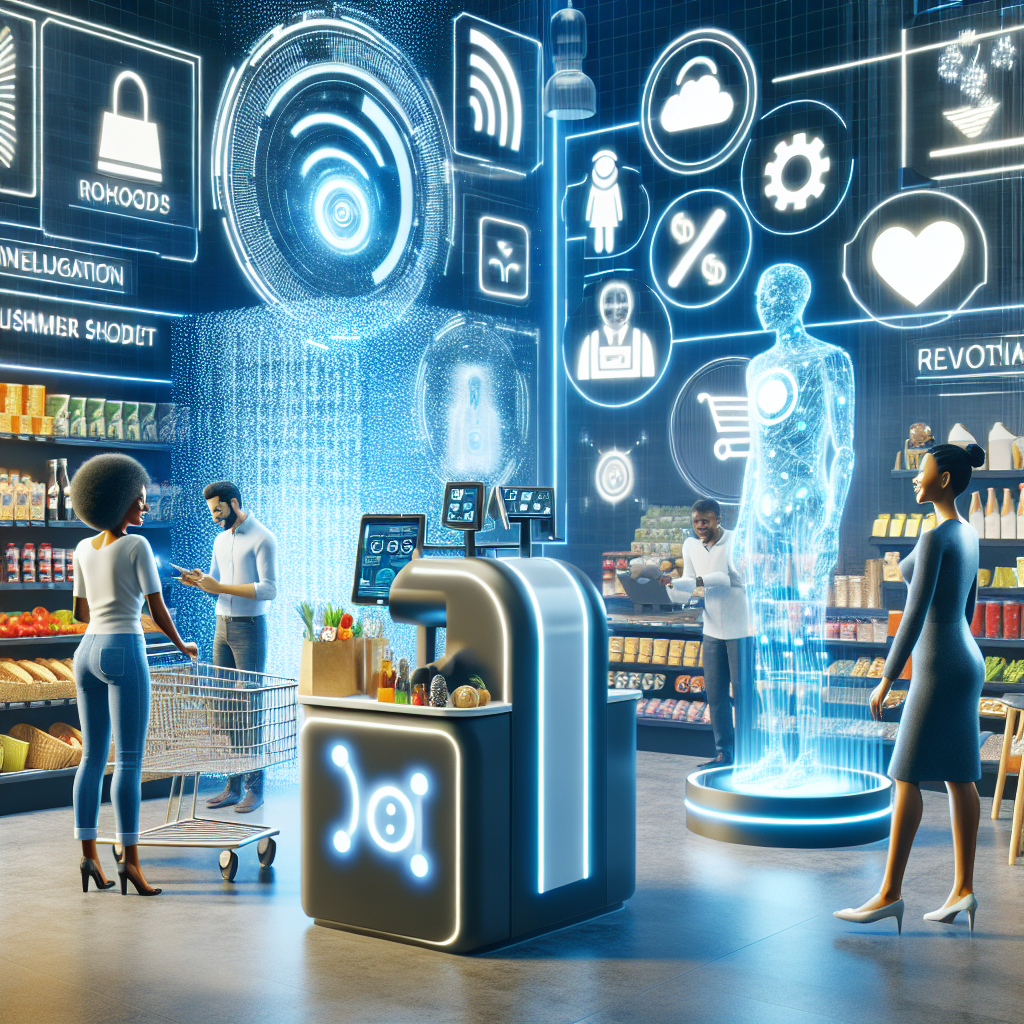From checkout to customer service: How AI is revolutionizing retail
Artificial intelligence (AI) has been making waves across various industries, and one of the sectors that has seen significant transformation is retail. From improving the checkout process to enhancing customer service, AI has revolutionized the way retailers operate and serve their customers. In this article, we will explore how AI is reshaping the retail landscape and discuss some of the key ways it is being implemented.
1. Checkout process:
One of the most noticeable ways that AI is revolutionizing retail is through the checkout process. Traditional checkout lines can often be slow, leading to long wait times for customers. Retailers are now implementing AI-powered solutions to expedite the checkout process, leading to improved customer satisfaction and increased efficiency.
One example of AI technology being used in the checkout process is self-checkout kiosks. These kiosks allow customers to scan and pay for their items without the need for a cashier. AI algorithms help to accurately identify products and calculate prices, streamlining the process and reducing the risk of errors.
Another area where AI is being used to enhance the checkout process is through automated payment systems. AI-powered solutions can analyze customer data and preferences to offer personalized payment options, such as mobile wallets or installment plans. This not only makes the checkout process more convenient for customers but also helps retailers to increase sales and improve customer retention.
2. Inventory management:
AI is also revolutionizing inventory management in retail stores. By leveraging predictive analytics and machine learning algorithms, retailers can optimize their inventory levels to meet customer demand more effectively. AI technology can analyze sales data, trends, and even external factors such as weather conditions to forecast demand and adjust inventory levels accordingly.
AI can help retailers minimize the risk of overstocking or understocking items, leading to reduced costs and increased profitability. By optimizing inventory levels, retailers can also improve customer satisfaction by ensuring that popular items are always in stock.
3. Personalized recommendations:
Another way AI is revolutionizing retail is through personalized recommendations. AI-powered algorithms analyze customer data, such as purchase history, browsing behavior, and preferences, to offer personalized product recommendations. This helps retailers to increase sales by guiding customers to relevant products and services, ultimately improving the overall shopping experience.
Personalized recommendations can be delivered through various channels, such as websites, mobile apps, or in-store displays. By leveraging AI technology, retailers can create targeted marketing campaigns that resonate with individual customers, leading to higher engagement and conversion rates.
4. Customer service:
AI has also transformed customer service in the retail industry. Chatbots powered by AI technology can provide quick and efficient responses to customer inquiries, reducing the need for human intervention. Chatbots can assist customers with product information, order tracking, and even troubleshooting common issues, leading to improved customer satisfaction and loyalty.
AI can also be used to analyze customer feedback and sentiment, allowing retailers to identify areas for improvement and address any issues proactively. By leveraging AI technology, retailers can enhance the customer service experience and build stronger relationships with their customers.
FAQs
Q: How is AI improving the checkout process in retail stores?
A: AI is revolutionizing the checkout process in retail stores by implementing self-checkout kiosks and automated payment systems. These AI-powered solutions help to expedite the checkout process, leading to improved efficiency and customer satisfaction.
Q: How is AI being used to optimize inventory management in retail stores?
A: AI technology is being used to analyze sales data, trends, and customer demand to optimize inventory levels in retail stores. By leveraging predictive analytics and machine learning algorithms, retailers can minimize the risk of overstocking or understocking items, leading to reduced costs and increased profitability.
Q: How is AI enhancing personalized recommendations in retail?
A: AI-powered algorithms analyze customer data to offer personalized product recommendations in retail stores. By delivering targeted marketing campaigns that resonate with individual customers, retailers can increase sales and improve the overall shopping experience.
Q: How is AI transforming customer service in the retail industry?
A: AI-powered chatbots can provide quick and efficient responses to customer inquiries, reducing the need for human intervention in customer service. By analyzing customer feedback and sentiment, retailers can identify areas for improvement and address any issues proactively, leading to improved customer satisfaction and loyalty.
